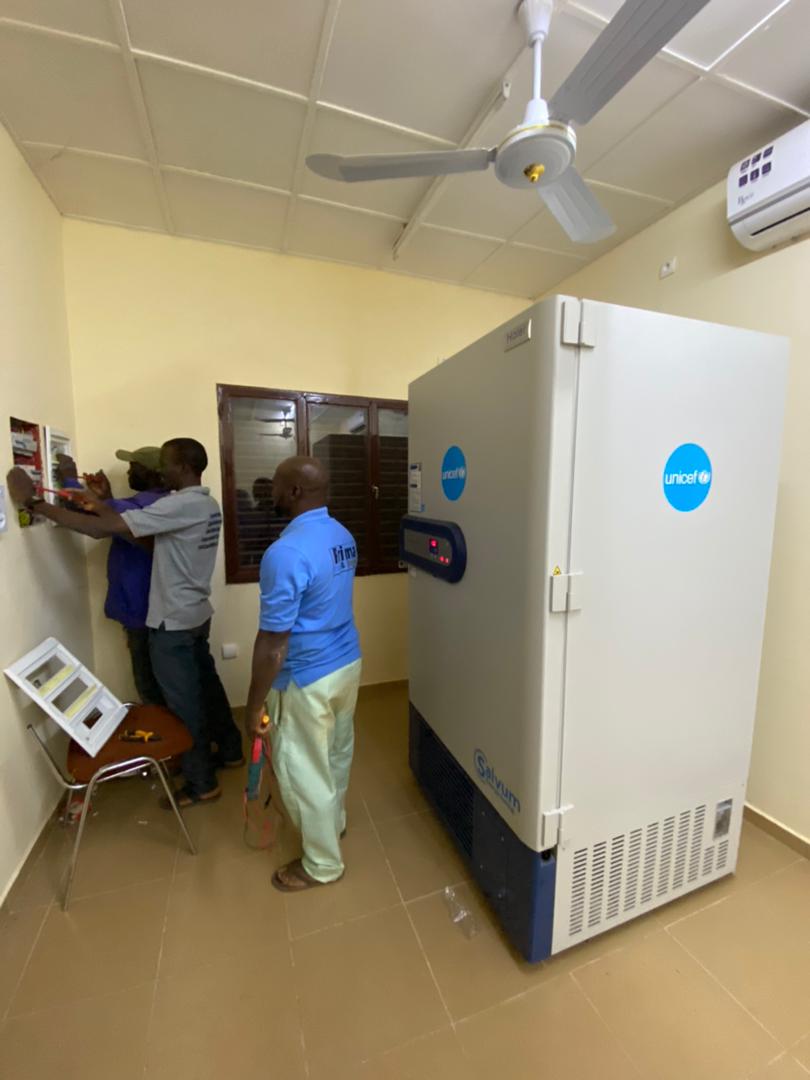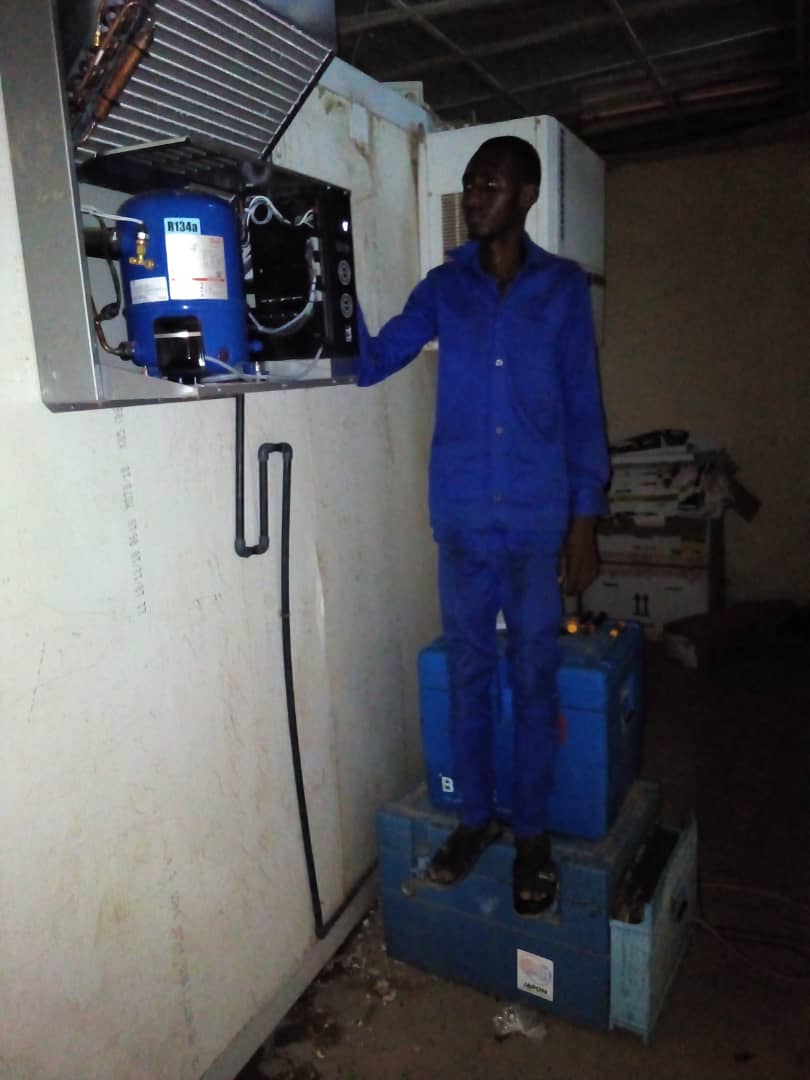Crowd-Sourced Solutions Hold Promise to Improve the Vaccine Cold Chain in Niger
Published on May 14, 2024
From the time a vaccine is developed and approved for use until the moment it is administered, it must be stored, handled, and transported carefully and deliberately in a temperature-controlled environment known as the cold chain. Most vaccines are sensitive to heat and light, so improper storage can compromise their quality and ability to protect against disease. To ensure the effectiveness of vaccines, the World Health Organization has set performance standards for vaccine storage and transport equipment such as cold rooms, refrigerators, freezers, cold boxes, and vaccine carriers. But meeting these standards is costly and resource-intensive, presenting a major barrier to equitable vaccine access.1

In recent years Gavi, the Vaccine Alliance has invested significantly in new cold chain equipment around the world, including in Niger, but the technology and practices to maintain it have not kept pace. People with the knowledge and training to perform preventive and corrective maintenance processes are essential to maintaining cold chain equipment, but in Niger, as in many low- and middle-income countries, these processes are often overlooked and underfunded. In Niger, USAID’s MOMENTUM Routine Immunization Transformation and Equity project took a people-centered approach to rethink Niger’s cold-chain maintenance system, talking directly to cold chain technicians and stakeholders who oversee and make decisions around cold chain management. By putting people first, the project gained insight on the gaps and barriers in the maintenance system to identify sustainable solutions.
MOMENTUM started by conducting in-depth interviews with stakeholders involved in cold chain equipment management and maintenance to understand their daily challenges and limitations. In April 2023, the project convened 23 cold chain technicians, supply chain managers, immunization officers, and financial managers from the Tahoua and Maradi regions of Niger, both in the southwest part of the country and containing populous cities, at a co-creation workshop to share their experiences and identify creative solutions.
The insights from this human-centered approach shed light on the root causes of cold chain maintenance issues specific to Niger. For example, participants noted that there was a lack of communication and information sharing among technicians, supply chain managers, and the government’s maintenance department for cold chain equipment. They also felt that maintenance training was overlooked compared with other aspects of immunization programs.

During discussions, the workshop participants proposed potential solutions to their shared challenges, including the idea for a digital platform to share technical information related to repairs and maintenance among all technicians. Such a platform would facilitate peer learning and crowdsource answers to questions like “Who else has had to replace a fan like this and how did you do it?”
Technicians also highlighted the need for training sessions to be tailored to the different people involved in cold chain maintenance. For instance, a health worker who needs to regularly clean refrigerators requires different training than a technician who needs to replace a compressor. Their respective training modules and technical resources should reflect the differences in their responsibilities and required competencies.
“This approach [of interviews and co-creation workshops] highlighted the commitment and ownership of staff engaged in cold chain maintenance and vaccine management,” said Yannick Agui, Country Lead for MOMENTUM in Niger. “I trust that the strategies coming from this work will contribute to a quality, sustainable maintenance system.”

By engaging people at the heart of cold chain maintenance, first-hand experiences and concerns were elevated to Niger’s national immunization program, and mutually beneficial solutions were proposed. The country’s immunization stakeholders are now equipped with concrete ideas to improve the maintenance system, support cold chain technicians, and prevent unnecessary vaccine waste.
“The workshop provided an opportunity for the country to see the real challenges of cold chain equipment maintenance,” said Dr. Abdoulaye Brah Bouzou, Supply Chain and Planning Advisor for MOMENTUM. Information from the workshop will be useful in guiding investments and planning activities, making cold chain equipment maintenance one of the priorities of the vaccine supply chain.”
The solutions generated under the program may soon be realized: under the Gavi Full Portfolio Planning, the Expanded Program on Immunization may proceed with implementing a digital platform for cold chain maintenance this year, contingent on funding.
Reference
- UNICEF Supply Division. What is a cold chain? https://www.unicef.org/supply/what-cold-chain.

